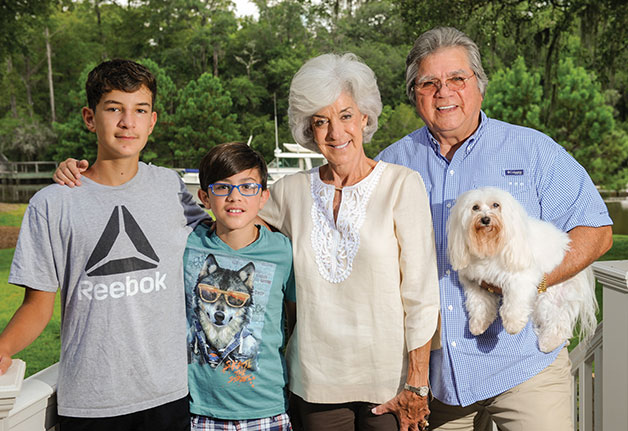Twenty years ago the Santa Rosa Band of Cahuilla (Cah-We-uh) Indian Reservation didn’t have electricity. Ten years ago they didn’t have communications. Today they have both and are using their geographic location and the expertise of retired Col. John Meyers ’75 to secure their future and protect their customs and heritage in Southern California.
Meyers, the president, CEO and chairman of the board of the Santa Rosa Cahuilla Corp., was raised on the reservation.
“My sister and brother still live out there,” says Meyers, who now calls Pawleys Island, S.C., home. “My sister, who’s four years younger than me, still raises cattle the way our family has for generations. She’s tougher than woodpecker lips.”
According to Meyers, the non-gaming tribe owns the highest peak in the San Jacinto Mountain range. The Santa Rosa Indian Reservation lies between Palm Springs and Anza, which makes it a prime location for business and government communications relay systems. In addition to facilitating the establishment of the business enterprise, Meyers also is using his experience to develop policies, procedures and other organic governing documents for the tribe.
Meyers started developing his understanding of governing systems upon his graduation from Wofford.
“I came to Wofford on the GI Bill,” says Meyers, who did two combat tours in Vietnam. “By that time I was dead serious about completing my education and getting my degree.”
Meyers was in the minority during his time at Wofford — married, a military veteran and an American Indian. Still he says his experience with professors and friends such as Dr. John Harrington, Dr. Phil Racine, Dr. Dan Maultsby ’61 and Dr. Constance Armitage Antonsen was transformative.
“At the time I think there were five veterans in my class,” says Meyers. “We were veterans of a very unpopular war. When I stepped onto campus, Dr. Joe Lesesne was a major in the South Carolina Army National Guard. I never felt as if I was in a place in which the military was looked down upon. I felt comfortable all the time that I was there.”
Meyers went on to work in Washington, D.C., for the Bureau of Indian Affairs, the Department of Defense, the Department of Housing and Urban Development, and the Department of Labor. He earned a master’s degree from the National War College and completed a decorated 31-year military career in the Army Reserves, including a combat tour during Operation Desert Storm.
“The opportunities I had and the places I served offered me rich experiences,” says Meyers, who still spends most days working via email and Skype, although he does make the trip from South Carolina to the reservation four times each year. “Someone took the page with the definition of retirement on it out of my dictionary.”
by Jo Ann Mitchell Brasington ’89, Fall 2016
